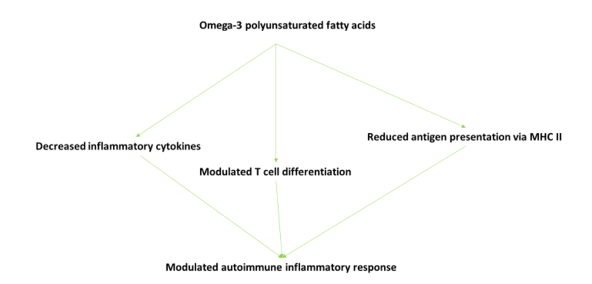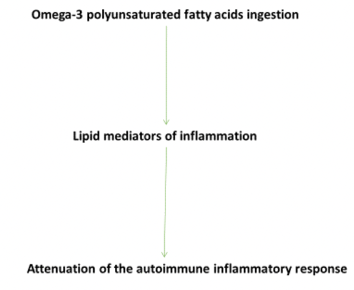Omega-3 fatty acids are known to be polyunsaturated fatty acids and are believed to have an impact on both health and illness.
It has been shown that omega-3 fatty acids have anti-arrhythmic properties, may lower inflammatory reactions, and can help prevent subsequent myocardial infarctions. They also have been found to protect cardiovascular disease. If administered, omega-3 fatty acids may be helpful in the treatment of inflammatory bowel disease. Omega-3 fatty acids have also been tested for their therapeutic potential in multiple sclerosis.
Scientists reviewed a large body of literature, summarizing findings in animal model experiments as well as in the clinical setting, illustrating that omega-3 fatty acids can modulate inflammatory autoimmune responses by reducing inflammatory cytokines, modulating T cell differentiation, and reducing antigen presentation via MHC II (Figure 1), and that changes in tissue levels of polyunsaturated fatty acids appear to alter the inflammatory response by altering the synthesis of inflammatory lipid mediators (Figure 2). These experimental results strongly suggest that omega-3 can act as precursors of inflammatory lipid mediators that can attenuate the autoimmune inflammatory response.
Moreover, they have been shown to ameliorate or prevent experimental arthritis and may reduce disease activity in rheumatoid arthritis.


Kostoglou-Athanassiou, I., Athanassiou, L., & Athanassiou, P. (2020). The effect of omega-3 fatty acids on rheumatoid arthritis. Mediterranean journal of rheumatology, 31(2), 190. [Link]
